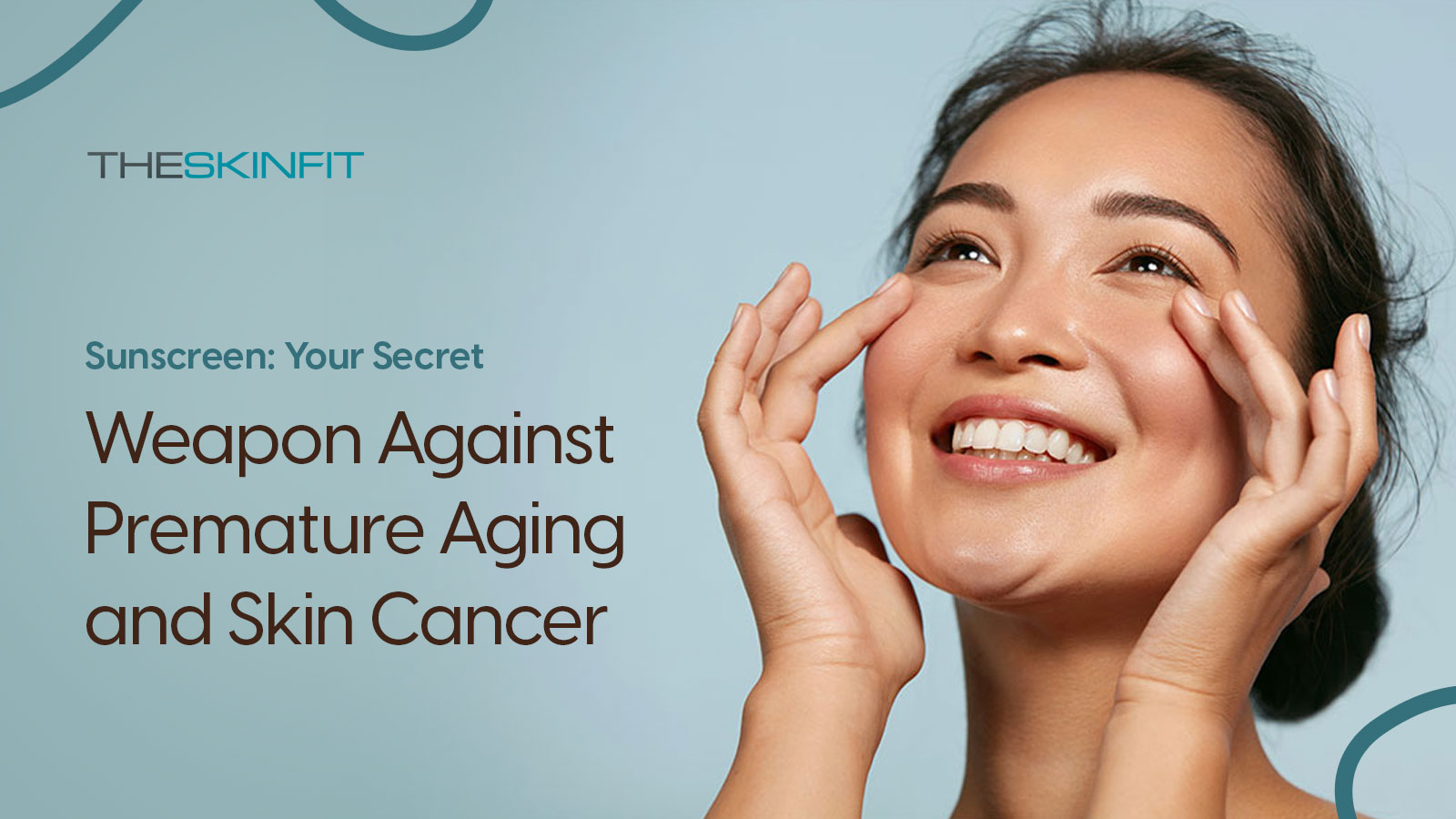Do you find yourself wondering how this is ever possible?
We will explain in this piece how those solar rays are hazardous to your skin, even if you are sitting inside the workplace under too many lights.
People may not know the difference between sunblock and sunscreen, so we must explain it.
Sunblock Vs. Sunscreen: What is Better?
Because people often need clarification, we must explain the difference between sunblock and sunscreen. Sunscreen absorbs and scatters sunlight before it reaches the skin. Sunblock, on the other hand, rests on the surface of our skin and reflects the sun's rays away.
Sunscreen and sunblock apply differently. Sunscreen must be rubbed in since it only works when the skin absorbs it. Sunblock functions as a physical barrier, so use it. Since UV rays may reach any exposed skin, you must apply sunblock equally. Sunscreen vanishes entirely, while sunblock leaves a white cast since it's not rubbed in.
Why Sunscreen is Important in Skincare
UV radiation exposure causes the skin to age prematurely, known as "photoaging." Photoaging may make you look much older than you are. Moreover, it can damage collagen, making your skin less supple and more prone to wrinkles, freckles, and dark spots.
Two forms of ultraviolet radiation (UVR) can be harmful in excess amounts:
- UVA, or ultraviolet A rays, are blamed for skin aging before its time.
- Ultraviolet B (UVB) rays are the ones responsible for sunburns.
The cells that make up your skin's outermost layer include a pigment called melanin, which acts as a natural sunscreen.
Too much UV exposure causes these cells to darken and die, demonstrating that melanin can only do so much to protect. Your skin cells are protected by sunscreen, which functions as a barrier. Any of the following are possible manifestations of this damage:
Extreme or chronic sunburn. To learn more about how to cure severe sunburns, check out our blog: the skin's blood vessels have burst.
How to Find the Best Sunscreen for Your Face?
The study says, "Sunburns and skin cancers are mostly caused by ultraviolet B (UVB) radiation, which is protected against by all sunscreens." Nevertheless, UVA rays also cause skin cancer and speed up aging. To be considered "broad spectrum," a product must meet rigorous standards. Items that aren't broad spectrum must clearly state that they only prevent sunburn, not skin cancer or aging."
Many different sunscreens are out there, making it difficult to choose the ideal one for your face. But here are some suggestions to help you zero down on the best option:
Try to Choose a Sunscreen That Shields Against UVA and UVB Rays.
To shield your skin from harmful UVA and UVB radiation, look for a sunscreen with a broad range of protection. Sunburns are brought on by ultraviolet B radiation, whereas skin aging and cancer are brought on by ultraviolet A radiation.
Make Sure the SPF of the Sunscreen You Use is at Least 30
SPF (Sun Protection Factor) is a way to measure how well a sunscreen blocks UVB rays. Dermatologists generally advise using sunscreen with at least an SPF 30.
Choose a Sunscreen Formulation That Works for Your Skin
Choose an oil-free, non-comedogenic sunscreen if you have oily or acne-prone skin. Use sunscreen with glycerin or hyaluronic acid to hydrate your dry or sensitive skin.
Analyze the Quality of the Sunscreen.
You want one that feels comfortable on your skin and does not leave a greasy or thick residue. To determine the most effective form of application, you should experiment with a variety of lotions, gels, and sprays.
Remember to Check the Label!
If you want to swim or sweat heavily while using sunscreen, you should look for one that is "water-resistant." Also, it would be best to look at the list of components to see if there is anything to which you are allergic, or that has caused you problems.
To protect against sun damage, the American Academy of Dermatology (AAD) suggests using sunscreen with the following features:
- Full spectrum coverage (protects against UVA and UVB rays)
- The protective factor of 30 or higher
- Water resistance
How does Sunscreen Work?
Think about how the sunscreen will feel on your skin and whether or not it will leave a greasy or heavy residue when you apply it. It would be best if you tried out different lotions, gels, and sprays to find the one that works best for you.
In humans, melanin is the pigment responsible for skin color, and darker skin contains bigger melanocytes that generate more melanin, which acts as a sunscreen for the skin's deeper layers.
Chemical sunscreens are similar to sponges in that they soak up UV radiation. Oxybenzone, avobenzone, octisalate, octocrylene, homosalate, and octinoxate are among the components. These products are often more easily absorbed by the skin and do not leave a white "cast."
The sun's rays are reflected away from the skin by the physical sunscreen, which sits on top of the skin like a shield. The active chemicals in them are either zinc oxide or titanium dioxide. If your skin is extra delicate, you should use this sunscreen.
As experts recommend, a sunscreen with an SPF of 30 or above will protect you against 97% of the sun's harmful UVB rays. No sunscreen can completely protect against UVB rays, although those with a higher SPF rating do a better job of doing so.
Remember that SPFs with higher numbers are no longer as effective as those with lower numbers. A high SPF does not mean you may stay in the sun longer without reapplying.
Sunscreen should be reapplied every two hours, even on cloudy days, especially after swimming or sweating.
A Final Word
Even on gloomy days, the sun may harm skin regardless of skin tone. Sun exposure through a car window may increase skin cancer risk, especially for working women who are outside daily.
Get medical treatment if you have a significant sunburn or a medical issue. It would help if you choose a sunscreen you enjoy and will use daily. You can choose a chemical or physical broad-spectrum sunscreen with at least SPF 30.
So, what are you waiting for? Explore TheSkinFit Pakistan's leading online cosmetics and beauty store.

